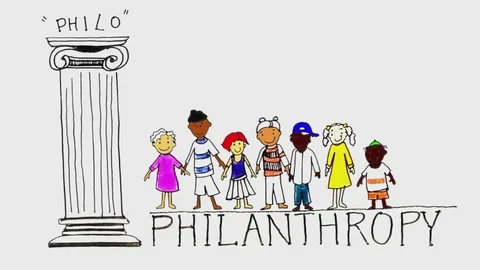In today’s fast-paced, digitally driven world, the nature of giving has evolved dramatically. Traditional philanthropy—once largely limited to wealthy donors writing large checks—is being reimagined by a new generation. These individuals are not only donating money, but also leveraging technology, social influence, and innovative ideas to make a difference. Welcome to the era of the modern philanthropist: redefining generosity in the 21st century.
From Wealth to Impact: Changing Priorities
Gone are the days when philanthropy was solely about wealth transfer. The modern philanthropist focuses on impact over amount. Millennials and Gen Z, in particular, are driving this shift. They seek transparency, measurable outcomes, and long-term solutions, often choosing to support causes through recurring micro-donations, crowdfunding, and even cryptocurrency.
This change in mindset emphasizes that generosity isn’t confined to the wealthy. Time, skills, and platforms now carry as much weight as money. Whether it’s mentoring underserved youth or building an app to help communities access clean water, today’s donors redefine what it means to give.
Technology: A Catalyst for Modern Giving
Technology plays a pivotal role in reshaping how generosity is expressed. Social media allows causes to go viral, and digital platforms have made giving as simple as tapping a phone screen. Websites like GoFundMe and Patreon empower individuals to become philanthropists with modest means but massive networks.
Moreover, blockchain technology is introducing transparency in donations, helping ensure that funds reach their intended recipients. The modern philanthropist: redefining generosity in the 21st century is as much a product of digital transformation as it is of cultural change.
A New Era of Accountability and Activism
Today’s philanthropists demand more from the organizations they support. They seek accountability, data-driven results, and community involvement. This approach leads to sustainable, inclusive solutions instead of one-off charity events or symbolic gestures.
In addition, many modern philanthropists align their giving with personal values. Environmental sustainability, racial justice, mental health, and gender equity are increasingly popular focus areas. Activism and philanthropy are becoming intertwined, further emphasizing the shift from charity to systemic change.
Conclusion: Generosity Without Borders
The modern philanthropist: redefining generosity in the 21st century is not just a slogan—it’s a movement. It encompasses anyone who is willing to give back, regardless of their financial status. By embracing innovation, demanding transparency, and emphasizing community impact, modern givers are shaping a new kind of philanthropy—one that is accessible, inclusive, and transformative.
As we move further into this century, one thing is clear: generosity has no single definition, and anyone can be a philanthropist in their own unique way.



